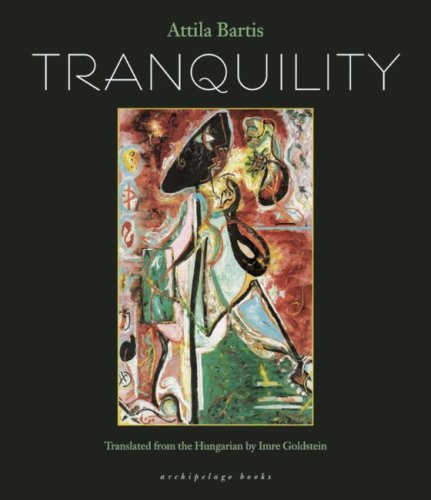I own a first edition of this book (thank you Roanoke City Public Library), and though it has an excellent cover painting which is strikingly apt, the jacket text and two blurbs (by Alice Walker and Nikki Giovanni) are terrible at giving any idea of what the book is actually about. The jacket text makes it out to be an uplifting work of social realism, while the blurbers are just vague. What they all avoid mentioning is that the book’s main character, a half-white/half-black South African single mother refugee in Botswana (as Head herself was), is schizophrenic and her hallucinations make up at least half of the novel. The hallucinations evade easy explanation as well as specificity; their achievement is to make A Question of Power transcend any easy classification as an “African” or “feminist” novel while still dealing with those very issues in specific terms. The hallucinations keep the book expansive and confounding.
The book is divided into halves called “Sello” and “Dan,” named for the main hallucinated figure during that section. Nonetheless, each appears in each other’s section, there is a much larger cast of characters, and “Sello” and “Dan” do not fall into any easy opposition. Each section alternates between these hallucinations and short, controlled descriptions of real life encounters between the main character, Elizabeth, and the others in her farming village, both natives and Peace Corps workers. Again, there are no blatant parallels. Elizabeth’s alienation from her surroundings, her race, her son, and men manifest themselves in the hallucinations, but so do less personal issues of human mythology (Buddha makes a few appearances), good and evil, gnosticism, and other things.
Of the two main visitors, Dan is the more straightforward. He appears as a kind of pan-African overman, parading an endless (73, actually) series of women before Elizabeth, taunting her by having sex with them and praising them while ridiculing her. He is a demon, but a lesser one; Elizabeth comes to realize that “She was being killed by Dan, but Sello had started it. The story had begun with Sello and Medusa.” The grand war between Sello and Medusa occupies a large chunk of the first half of the book, and it’s far more puzzling than Dan and his women. Amidst strange symbols and images and a recounting of the story of Osiris and Isis, there is this passage, which suggests the struggle of the book itself:
The wild-eyed Medusa was expressing the surface reality of African society. It was shut in and exclusive. It had a strong theme of power-worship running through it, and power people needed small, narrow, shut-in worlds. They never felt secure in the big, wide flexible universe where there were too many cross-currents of opposing thought.
The antagonisms between Sello and Medusa, and later between Dan and Elizabeth, seem to both stand in some way for that opening up of one’s self to the greater world and the abdication of power and the struggle around it. Yet Sello is hardly unalloyed goodness; he makes things very difficult for Elizabeth, scares the hell out of her, and exposes her to a good deal of evil. The ultimate result, though, seems to suggest that Elizabeth views the process as one of working through, that her hallucinations have a substantive reality that bring her closer to the world in its entirety, and that for all her pain and suffering, the journey was invaluable.
The novel does have a uplifting end, with a seeming rapprochement with Sello and the cosmos that he comes to represent, but it is a qualified optimism. The universe that is revealed to Elizabeth is a very scary place and the struggles that she endures are torturous, yet Head resists any suggestion of triumph or resolution, suggesting instead that what Elizabeth has gained is understanding. It is, as I read it, an understanding that is private and specific to her, and so I think the exact meaning of some of her hallucinations is not for a reader to be certain of, as they represent one person’s individual mythology. Nor do they yield concrete results for the many political, economic, and racial issues that they raise. So among the intense imaginative fervor of the book’s hallucinated scenarios and the difficult life of Elizabeth, there still remains an intimidating sense of intractability, and that is the challenge to readers that the book presents.
